In the Southern Moyamba District, along the shores of Sierra Leone, Plantain Island, a place stood in history, finds itself caught in the throes of an environmental crisis. Once a haunting slave pen, an island of natural beauty, is now grappling with the ruthless impacts of climate change.
Over the centuries, Plantain Island stood embellished with lush greenery and thriving rainforests. However, the early 2000s marked a turning point as the island began to lose its original attraction, with locals turning victims to the hands of climate change induced by human activities. The relentless forces of deforestation, sand mining, and unplanned constructions by inhabitants, irreversibly altered the landscape, leaving over 4000 locals, reliant on fishing for their livelihoods, to bear the unbearable consequences of this environmental upheaval.
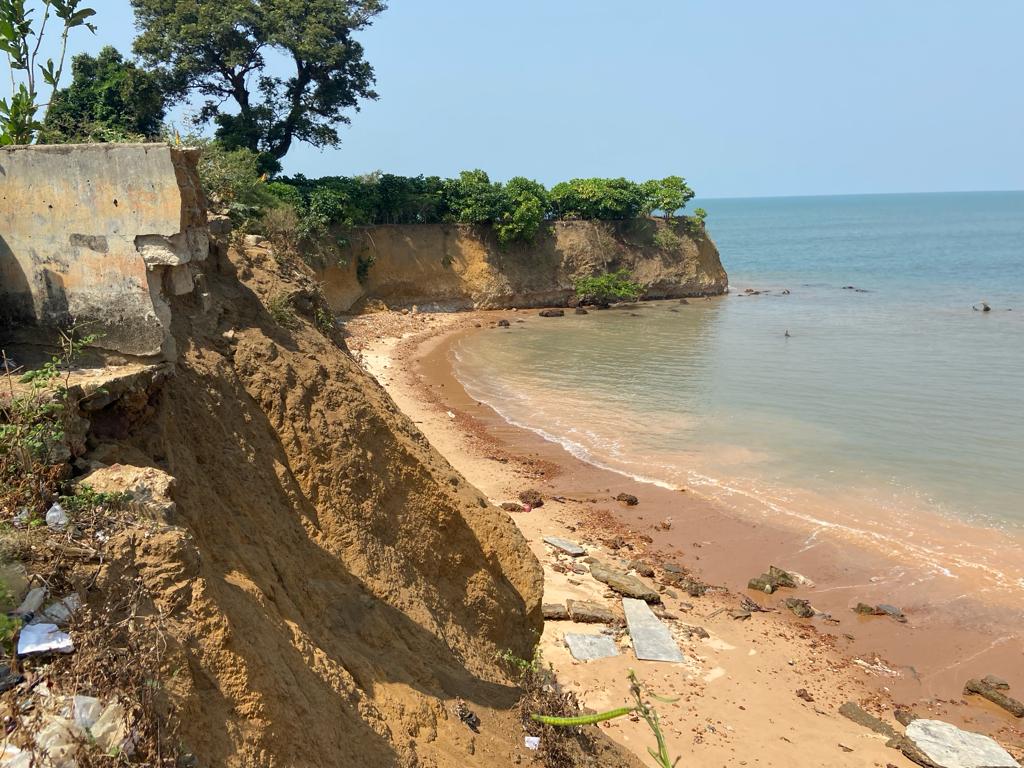
As years pass by, the island, once a steadfast exhibition against the tides, succumbs to relentless erosion, gradually surrendering its territory to the encroaching waters. Plantain Island, now a shadow of its former self, staggers on the brink of disappearance.
Close to the heart of this ecological tragedy, lies Shenge, the headquarter town of the Kargboro Chiefdom in Moyamba District. Here, the Supreme Islamic Council Primary School, the sole educational institution on Plantain Island built in 1986, stands as a testament to the pervasive impact of climate change. Positioned over 100 meters from the sea, the once resilient school has lost one of its classrooms to the relentless rise of the ocean, and fear now shrouds the community.
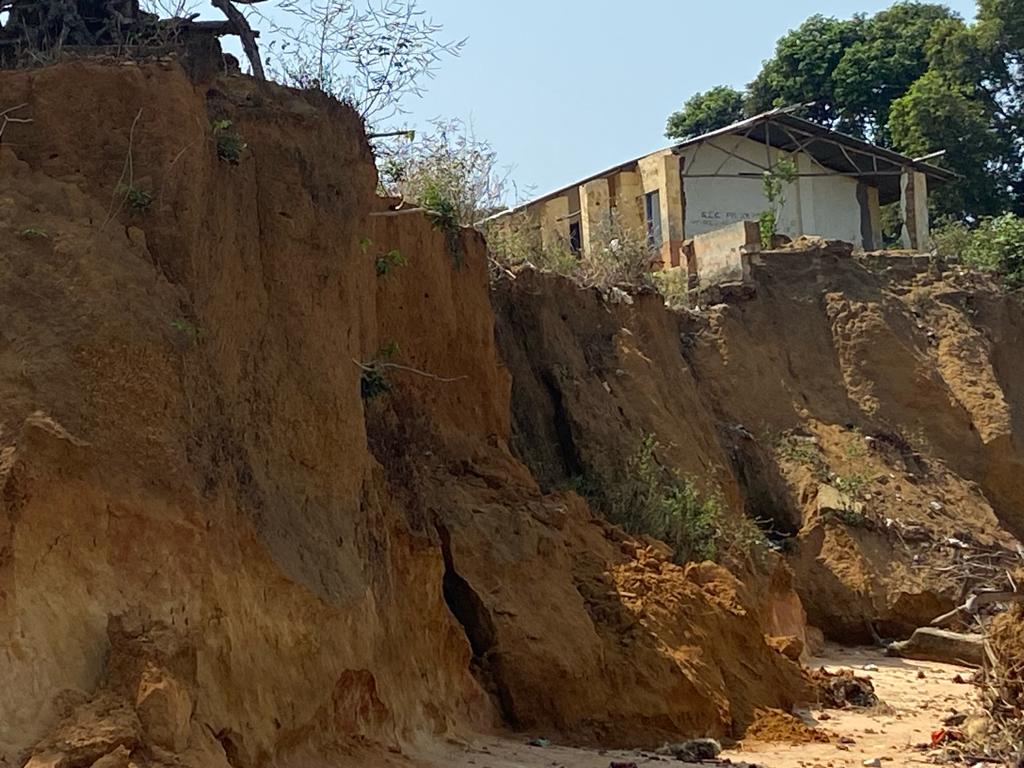
Osman A.B Kamara, the head teacher of the primary school, laments the erosion eating deep into the school environs, making parents hesitant to send their children to school in utter fear of imminent danger. As I cautiously approach the collapsed classroom for a photograph, villagers vehemently warned against treading on the deadly terrain.
Among the disheartened diaspora is Algali A Bangura, whose family roots intertwine with the island’s soil. Forced to abandon his home in 2007 as the waters claimed his family’s land and sprawling plantations, Algali now gazes back at the submerged remnants of his past. Coconut stems, orange stems, once flourishing plantations, now stand as silent witnesses to the relentless march of the sea.
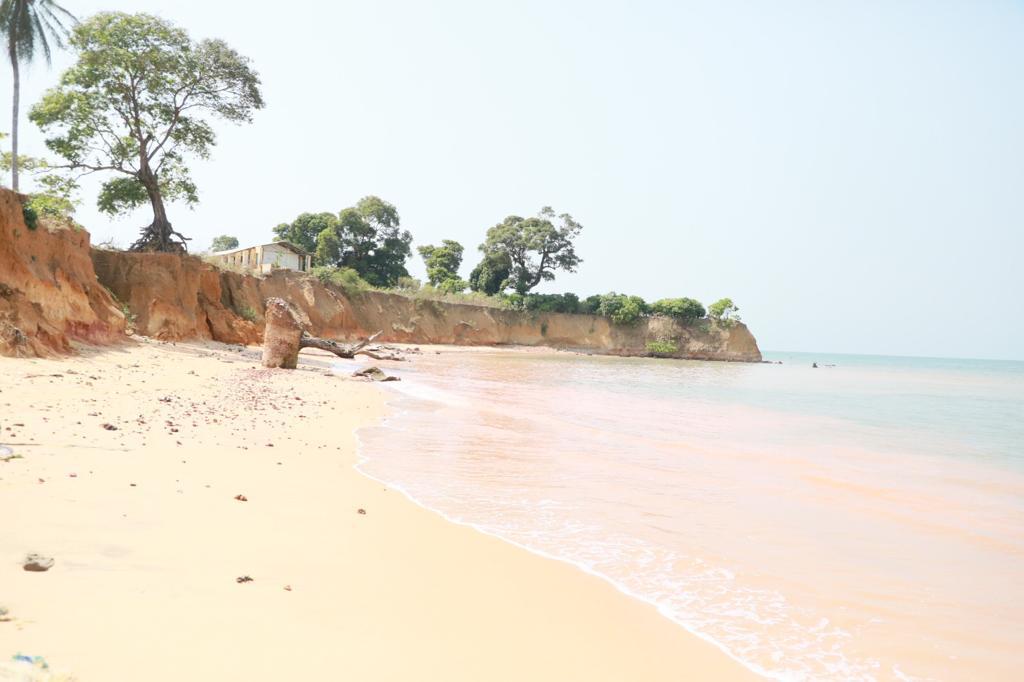
Rising temperatures and changing rainfall patterns
Sierra Leone has experienced a noticeable increase in average temperatures, with a rise of approximately 1.2°C over the last century. Changes in rainfall patterns have been stark, with altered distribution and intensity leading to a rise in extreme weather events.
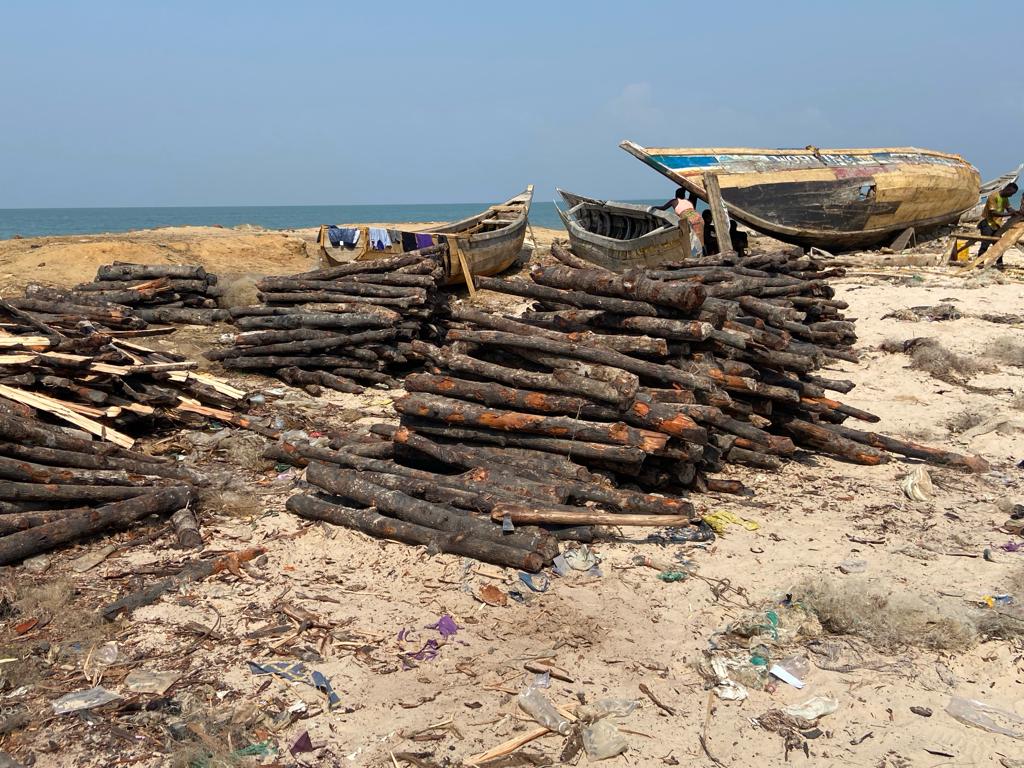
The warming trend contributes to an increased frequency of droughts and erratic rainfall, posing a significant threat to agriculture, the backbone of Sierra Leone’s economy.
Sea-Level rise and coastal erosion
Sierra Leone is ranked as the third most disaster-prone country globally, facing recurrent challenges from rising sea levels. The country has witnessed a consistent rise in sea levels at a rate of approximately 4.5 millimeters per year, contributing to coastal erosion.
The effect is glaringly evident on Plantain Island, where over 4000 residents face the imminent loss of their homes and livelihoods due to encroaching waters.
Extreme weather events and flooding.
Sierra Leone experiences an increasing frequency of extreme weather events, including heavy rainfall and flooding.
In 2017, the devastating mudslide in Freetown claimed over a thousand lives, exposing the vulnerability of communities to climate-induced disasters.
The 2017 mudslide remains a haunting reminder of the lethal synergy between climate change and extreme weather events, leading to tragic loss of life and property.
While statistics underscore the gravity of the situation, Sierra Leone is not merely a victim of climate change but an active participant in seeking solutions. Government has initiated several measures to adapt to the evolving climate; including implementation of sustainable practices, encouraging sustainable land use, afforestation, and responsible resource management.
There is more need for community awareness and resilience building through empowering communities to understand and adapt to climate-related challenges and engaging with global partners for support, technology transfer, and capacity building.
Mangrove harvesting for fish smoking: A double-edged sword in coastal climate battle
As I moved around the depleted Island, I came across bunches of harvested mangroves prepared for fish smoking. The harvesting of mangroves for fish smoking at Plantain Island and other coastal communities emerges as a common practice. While this activity is integral to the local economy, providing livelihoods and sustenance, it also unleashes a series of environmental consequences that echo far beyond the immediate shores.
The reliance on mangrove wood for fish smoking carries profound implications for Sierra Leone’s coastal climate dynamics. Harvesting mangroves for smoking releases stored carbon back into the atmosphere, contributing to the greenhouse effect and climate change.
Mangroves which serve as natural barriers against erosion and storm surges are constantly being harvested around the shores of Plantain Island and their removal exposes the Island to increased vulnerability, especially in the face of rising sea levels attributed to climate change.
The indiscriminate cutting of mangroves disrupts these ecosystems, leads to biodiversity loss and affecting the subtle balance of coastal ecosystems.
IOM, EPA intervention: a renew hope for the islanders
Amidst the community’s depletion, a glimmer of hope arrives in the form of the International Organisation for Migraion and the Environment Protection Agency (EPA). A team, including the Deputy Minister of Environment and the Head of Country Office for the International Organization for Migration (IOM), descends upon the island to assess the environmental hazard.
IOM has joined forces with the Environment Protection Agency and the Ministry of Environment to officially visit Plantain Island to see and gather firs-thand information from locals on the impact of climate change in their community.
IOM Development Fund has allotted a substantial USD 300,000 funding in order to scientifically understand what is going on, on two targets islands- plantain and Yelibuya Islands on a two years pilot project which aims to mitigate the already depleted islands.
Christos Christodoulides, Head of Office IOM Sierra Leone said the project which is to scientifically understand the impacts of climate change on the two fishing island has an intensive research component to understand the root causes of what is happening on the two islands and provide solutions to the affected people.
He said the nexus between migration and climate change is very important which was why the IOM came in. He said there is already internal migration taking place as good numbers of people have moved from Plantain Island to mainland Shenge.
“IOM is particularly proud because this is our first migration climate change project in Sierra Leone and I am really touched by the stories of the islanders. We have seen and felt the impact of climate change on the island and truly we admire the resilience of the people of this fishing island,” he averred.
Sheku Mark Kanneh, Chief Director at the Environmental Protection Agency, expresses gratitude for the resilience of Plantain Island’s people amid the deadly challenges of climate change. The EPA, deeply concerned about the escalating crisis, collaborates with the IOM to secure funding for the mitigation of this environmental catastrophe, striving to save the island from disappearing.
Pauline Macharia, Head of Programs at IOM Sierra Leone, recounts the organization’s earlier visit in May 2023, underscoring their commitment to understanding and addressing the impacts of climate change on the island


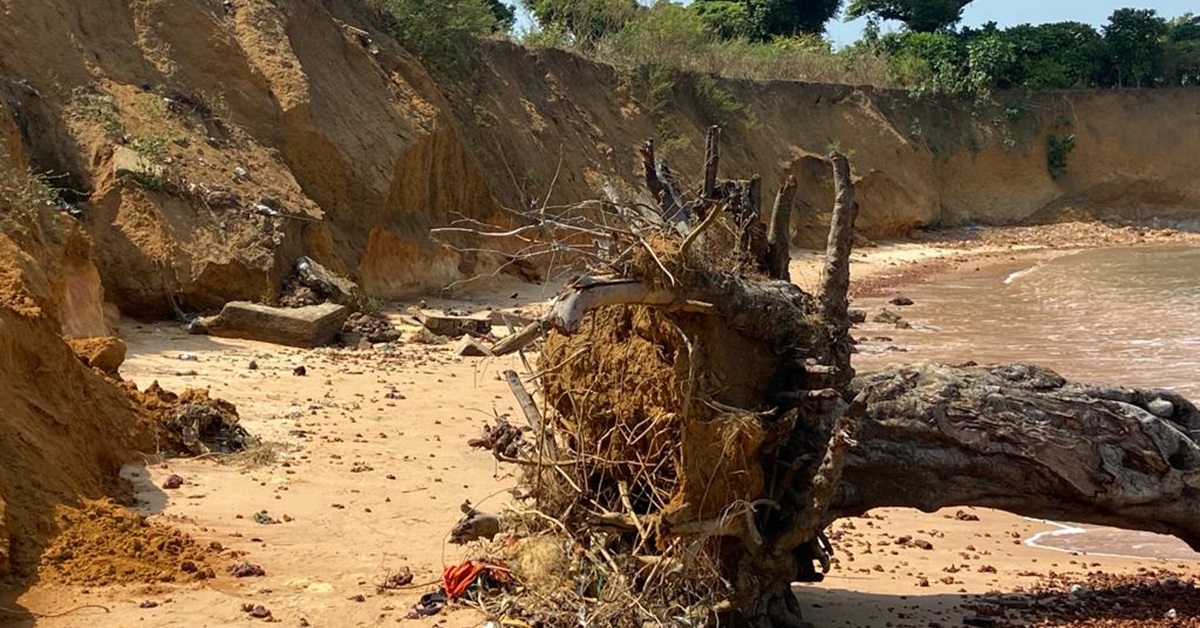









Climate Change is real and let’s take “Action Now”.
Banana Island is in the Kagboro Chiefdom. As Honorary Paramount Chief of this chiefdom, I’m very worried about saving the historic slave fortress on the island. We need to find a way to save this important relic.
.
Am a from kargbo chiefdom
And I know plantain island for years now
How I wish sierra Leone government would have help to restore this peaceful attractive island for both historical and for tourist attractions